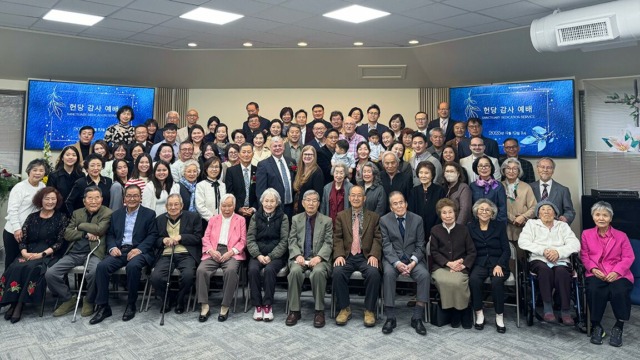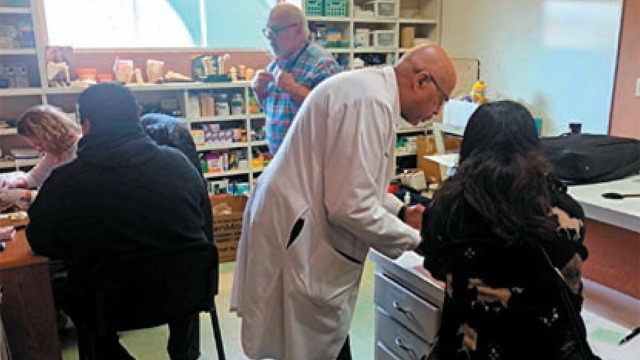A few of us share by nature, some of us had to learn it. The condition of sin into which we are born sees to it that sharing is something that does not necessarily come naturally.
Growing up, sharing seemed particularly hard for me when I was asked to share something that was a treasure to me, or something that I’d earned—a privilege, a reward, or something I’d earned from hard work.
Early on, most of the sharing I had to do was with my siblings. When you share a roof, you need to share other things. I wish I could say I did this well early on. I guess there are some things you have to share with others who have not yet earned it, knowing there was always the chance they’d break it or treat it more casually than you would.
And being selfish isn’t always about “things.” One birthday in my younger years will illustrate this. I think I was about 10 or 11. My mom wanted to know what I wanted to do for my birthday, and I was quick to answer, “a baseball party.” I already had a list of 17 friends plus myself drawn up—nine for each side. Perfect for a baseball party. I actually cared less about the presents I might receive and cared more that I could have a baseball game with my friends.
Of course, not all friends are created equal when it comes to baseball skills, and when I drew up the two teams from among my friends, I confess that I sort of “stacked” my team. I knew who was better and who wasn’t. I knew who could hit a pitch and who would probably strike out. I knew who could field a grounder and who would probably let it go between his feet. And, of course, I chose myself as the pitcher for our team. I was pretty good at that and could throw pretty fast for a kid my age.
My grand game worked for about two-thirds of an inning when my mom, who didn’t have much baseball savvy but who had lots of experience seeing selfishness in her children, stepped in and announced that she would pitch for both teams for the rest of the game. Though I didn’t like it much when she did that, even at 10 or 11 years old, I knew she was right. I had demonstrated that I had not shared well by how I stacked the teams and chose the best position for myself.
In applying this story, please know that it doesn’t “stand on all fours,” so to speak. But there’s a principle or two that I’d like to surface as I share something very important—you might even say it’s critical to the survival of our churches.
The central issue I’m focusing on here is a deeply held, heart-felt desire that wherever they are present, that our youth and young adults are fully integrated in church life and leadership.
While attending my very first General Conference Session in Indianapolis in 1990, I heard the newly elected president say in his inaugural sermon, “if we give our youth a piece of the pie, maybe they’ll stick around for dinner.”
So, is your church sharing the pie? Are you willing to involve and trust your youth and young adults in the decision-making processes of the church? Do you give them significant things to do? Do the actions and reactions of your church show that their input and desires are as important as those who are older?
It’s not easy to share some things. Leadership (which often turns into a euphemism for control) is something that’s earned, after all, right? Why should you share something you’ve earned?
And what happens when leadership is hoarded, and the leaders pass from the scene? Who’s left to take their place? If younger, more energetic people have not been mentored or trusted along the way, who will be left to lead?
I asked our pastors at a meeting some months back about how our youth and young adults are being integrated into their church’s life and leadership. There were some encouraging responses to this, but there were also a number of discouraging ones. Among the reasons the pastors identified for not having youth and young adults in leadership roles were these:
- They are too inexperienced (okay, so mentor them!)
- Fear of what they will do (they might surprise you with how responsible they can be!)
- Older members don’t want to see anything change (are you prepared for your church to die, then?)
- Fear of discouragement about issues the church faces (you can teach them the value of faith in the face of difficulties)
I always cringe a little when I hear the well-intentioned phrase uttered in church, “our children and youth are the future of the church.”
I don’t think we’ll ever make real progress in keeping our youth and young adults unless we start thinking of them as the church, right along with us older, more entitled members.
It will take great resolve and trust in the Holy Spirit to open our hearts and share our well-earned positions of leadership with our younger members. But the payoff will be enormous for the kingdom.
It’s one of my aspirations for the Rocky Mountain Conference. Will you make it one of yours, too?
—Mic Thurber is RMC president.




